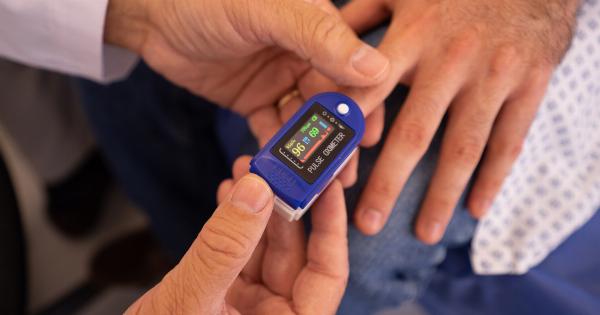Cholesterol is a waxy substance that is naturally present in our body and is essential for the proper functioning of our cells. But an excess of it can lead to various health problems, including heart disease, stroke, and high blood pressure.
Elevated cholesterol levels are a cause of concern and should be monitored regularly. Here are some warning signs that indicate elevated cholesterol levels:.
1. Chest Pain or Angina
High cholesterol levels increase the risk of atherosclerosis, a condition where plaque builds up in the arteries. This can reduce the flow of blood to the heart, leading to chest pain or angina.
If you experience chest pain or discomfort, it is advisable to consult a doctor to rule out any underlying heart disease.
2. Shortness of Breath
Elevated cholesterol levels can cause the narrowing of blood vessels, making it harder for the heart to pump blood to the lungs. This can result in shortness of breath and fatigue. If you experience these symptoms, see a doctor to determine the cause.
3. Numbness or Tingling in the Limbs
High cholesterol levels can cause the formation of fatty deposits in the arteries, leading to reduced blood flow to the limbs. This can result in numbness or tingling in the arms or legs.
If you experience these symptoms, seek medical attention to prevent further damage.
4. High Blood Pressure
Elevated cholesterol levels can also cause high blood pressure, which can damage the arteries and increase the risk of heart disease.
If you have high blood pressure, it is important to get regular check-ups and work with your doctor to manage your cholesterol levels.
5. Swelling in the Legs or Feet
High cholesterol levels can cause water retention and swelling in the legs or feet. This is because the excess cholesterol can damage the walls of the veins, leading to leakage of fluids.
If you experience swelling, seek medical attention to rule out any underlying conditions.
6. Yellow Bumps on the Skin
Elevated cholesterol levels can cause the development of yellow bumps on the skin, particularly around the eyes. These bumps, also known as xanthomas, can be a sign of underlying health problems and should be evaluated by a doctor.
7. Digestive Problems
Elevated cholesterol levels can cause digestive problems, such as bloating, constipation, or diarrhea. These symptoms can be caused by the buildup of cholesterol in the liver and the production of excess bile.
If you experience these symptoms, work with your doctor to manage your cholesterol levels.
8. Fatigue or Weakness
High cholesterol levels can cause fatigue or weakness due to reduced blood flow to the muscles. This can make it harder for the body to function properly, leading to decreased energy levels and overall weakness.
If you experience these symptoms, see a doctor to rule out any underlying conditions.
9. Erectile Dysfunction
Elevated cholesterol levels can also cause erectile dysfunction in men. This is because the excess cholesterol can damage the blood vessels that supply blood to the penis, leading to difficulty achieving or maintaining an erection.
If you experience these symptoms, talk to your doctor about ways to manage your cholesterol levels.
10. Memory Loss or Confusion
High cholesterol levels can also affect brain function, leading to memory loss or confusion. This is because the excess cholesterol can cause plaque buildup in the brain, reducing blood flow and oxygenation.
If you experience these symptoms, seek medical attention to rule out any underlying conditions.
Elevated cholesterol levels can cause a range of health problems, and it is important to monitor your levels regularly. If you experience any of the warning signs mentioned above, seek medical attention to prevent further complications.




























